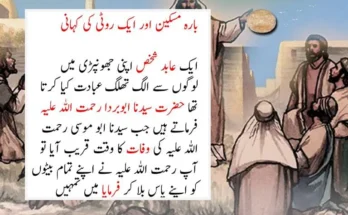Compassion, often described as a noble act of kindness, has been at the core of many historical narratives. From the selflessness of Mother Teresa to the tales of everyday heroes, compassion has the ability to change lives. It’s a universal language that speaks to the soul, crossing barriers of race, religion, and nationality.
The Untold Stories
Behind the grandeur of global figures lie countless untold stories of compassion. These tales of sacrifice, both big and small, remind us of the innate goodness that resides within us. From a stranger’s helping hand during a crisis to the sacrifices made by parents for their children, compassion shapes the fabric of society.
Compassion Across Cultures
The concept of compassion transcends geographical borders. It’s a binding force that unites humanity. Explore the commonalities and differences in the way compassion is expressed across various cultures.
The Science of Compassion
Compassion isn’t just a warm feeling in your heart; it’s backed by science. Studies show that acts of compassion trigger the release of oxytocin, a hormone associated with bonding and love. Dive into the scientific underpinnings of compassion and how it impacts our physical and emotional well-being.
Empathy vs. Compassion
Empathy and compassion often go hand in hand, but they’re not the same. Discover the nuances that differentiate them and why compassion is the driving force for positive change.




Compassion in Action
Compassion is not a passive concept; it’s a dynamic force for change. From charitable acts to volunteering, individuals and organizations put compassion into action daily. Explore the many ways people make the world a better place through their acts of kindness and sacrifice.
Random Acts of Compassion
Sometimes, compassion shines brightest when it’s spontaneous. Random acts of kindness can have a profound impact on both the giver and the recipient. We share heartwarming stories of these spontaneous acts that touched lives.
FAQs
Q: How can I cultivate compassion in my daily life?
Compassion starts with a mindset. Practice empathy, actively listen, and look for opportunities to help others. Small gestures of kindness can go a long way.
Q: What are some famous examples of compassion in history?
Some famous examples include Mahatma Gandhi, who advocated for non-violence and compassion, and the story of Oskar Schindler, who saved hundreds of lives during the Holocaust.
Q: Can compassion be taught?
Yes, compassion can be cultivated and nurtured. Schools and organizations are increasingly focusing on teaching compassion and empathy as essential life skills.
Q: How does compassion benefit our mental health?
Compassion is linked to lower stress levels, improved emotional well-being, and stronger social connections. It can enhance your overall mental health and quality of life.
Q: Is compassion the same as altruism?
While compassion involves empathy and understanding, altruism goes a step further by selflessly helping others. Compassion often leads to altruistic acts.
Q: Can compassion make the world a better place?
Absolutely. Compassion is a powerful force for positive change. It can bridge divides, foster understanding, and create a more harmonious world.
Conclusion
“Compassion A Tale of Sacrifice” is a testament to the goodness that exists in the world. It’s a reminder that, even in the face of adversity, compassion can light the way. Let’s embrace this powerful force, practice kindness, and create a better world, one act of compassion at a time.



